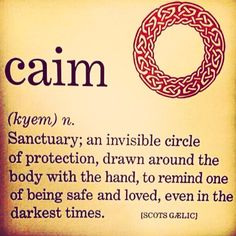Help Is Available
I just turned in my grades for fall quarter 2018! Whew — that’s over! (Woo hoo!)
I don’t know what I was thinking when I signed up to teach two courses this fall. Oh, yes, I do know. I was feeling a very evil pinch of “empty-nestitis” (just made up that word), and I was also feeling that my darling mother was going to outlive me. So if my baby (19 years old) didn’t need me, and Mom didn’t need me to be constantly hovering, then I may as well go back to work. That’s what I was thinking.
When I first contacted the college, in August, I was thinking that I’d just teach 2 classes per quarter for a few years — get my health insurance paid again — earn a little income — etc. Then, as you know, the universe had a big ol’ laugh at me.
My mother died.
And even though I adored the majority of my students and drew a lot of energy from them, even though I’m grateful to them for being a much-needed distraction from everything else, I discovered that I really, really do not have time to trek up to north Everett every day to teach freshman composition.
To borrow a bit from Emily Dickinson’s lexicon, “My business is to write.”

As I graded this last set of papers — an assignment intended as a light-hearted research paper requiring students to 1) talk to a reference librarian, 2) interview a parent or other person from a previous generation, 3) quote and use in-text citations, and 4) create a Works Cited page a la MLA guidelines — I was amazed at how many students had decided to do the bare minimum.
I get that they perhaps hadn’t written this sort of paper before, or recently, but — hey — I was right here! I kept telling them how many hours I was at my desk every afternoon. I arranged to have specific hours available to meet with them. I gave them models to look at. I went over the models in great (excruciating) detail.
Why would a student decide to fake a bibliography or omit it altogether, or do 2 sources (when they were to have 5), or not use a single quotation in a paper that was all about learning how to use sources and quote from them? Why would they give up…
WHEN I OFFERED AGAIN AND AGAIN TO WORK WITH THEM INDIVIDUALLY AND GIVE THEM ALL THE HELP THEY NEEDED?
In truth? I think it is really, really human of us to go it alone, to get too busy or to believe we’re too busy to ask for help, to throw in the towel, to tell ourselves it’s impossible……to forge our way forward step by painful, bleeding step……when all the time there’s a bus pulled up at the corner, just waiting to offer a ride.
I do it, too.
This isn’t a post for pitching my services, just a reminder — help is available! Look around! Ask! (It’s a reminder for me, too, of course.)
And, should you want help from me, you know how to get it.
Meanwhile, I hope you write.
Bethany
[photos from pixabay.com]



 In the interest of full disclosure, the cow video got me because I’ve been writing a poem about cows.
In the interest of full disclosure, the cow video got me because I’ve been writing a poem about cows.
 To my mind, THE CIRCLE isn’t necessarily “woo woo” (what do we mean by that? Spiritual? And what would be wrong with spiritual?), unless you want it to be. In the Prologue, Day reassures readers that The Circle is “not in conflict with any religious or spiritual beliefs,” and my experience has borne this out. You could understand it as an Irish Caim, a blessing circle. But it is not magic, and it is not about any realm of being other than the one we live in right now.
To my mind, THE CIRCLE isn’t necessarily “woo woo” (what do we mean by that? Spiritual? And what would be wrong with spiritual?), unless you want it to be. In the Prologue, Day reassures readers that The Circle is “not in conflict with any religious or spiritual beliefs,” and my experience has borne this out. You could understand it as an Irish Caim, a blessing circle. But it is not magic, and it is not about any realm of being other than the one we live in right now.